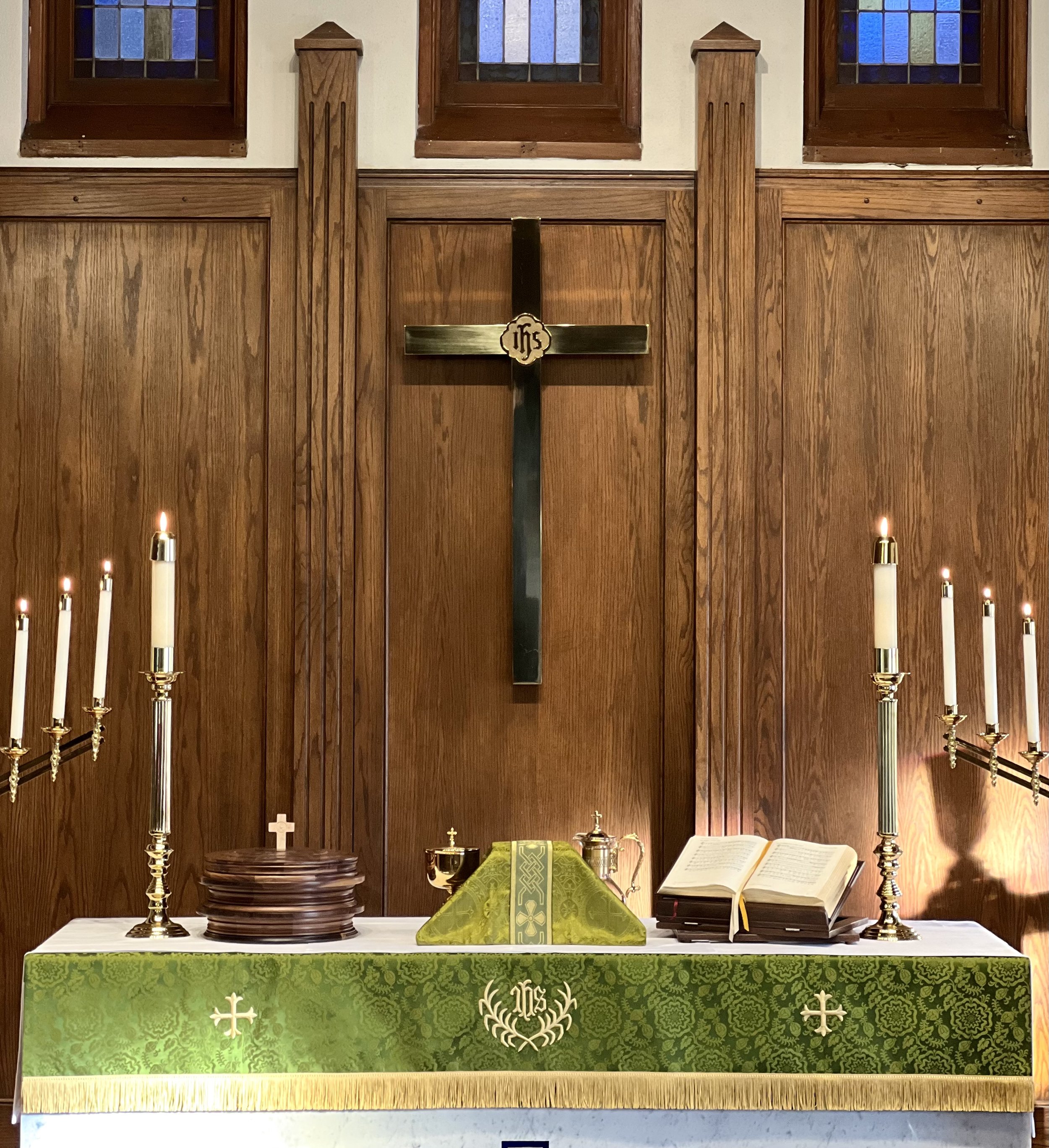The Words of Our Lord are the high point of the Service of the Sacrament. They are drawn from the accounts of Jesus instituting the Lord’s Supper on Maundy Thursday according to the holy Evangelists Matthew, Mark, Luke, and Saint Paul. Everything else in the Service of the Sacrament flows out from these words because they are the authoritative source of the teaching of what the Lord’s Supper is: “The true body and blood of our Lord Jesus Christ under the bread and wine, instituted by Christ Himself for us Christians to eat and to drink” (Small Catechism VI.1).
Previous hymnals have called these “The Words of Institution,” a title which emphasizes the historicity of the Sacrament as instituted by Christ. Our Lutheran Service Book has reinstated the ancient title, “The Words of Our Lord,” which is a translation of the Latin Verba domini (sometimes abbreviated to simply, “Verba”). This title emphasizes the present reality of the Sacrament. The Lord’s Supper is not only a historic event conducted by Jesus two thousand years ago, but these words are the means by which Christ effects the Sacrament in all times and places according to His command, “Do this in remembrance of Me” (1 Corinthians 11:24). Without the Words of Our Lord, we have mere bread and wine and no assurance of blessing. Wherever the Lord’s Supper is celebrated according to Christ’s institution and with His Words, there Christ’s body and blood are truly present and given to us to eat and to drink for the forgiveness of sins. Christ Himself speaks the Verba through the pastor, and His Word is efficacious—it does what it says to bestow His gifts on us.
The Verba have always been used in the Eucharistic liturgy. In the Middle Ages, they were included in a longer set of prayers which turned the Sacrament into a sacrifice, as though the priest was offering up Christ’s body and blood to God. This part of the liturgy was spoken in Latin by the priest privately at the altar so the people could neither hear nor understand it. Luther removed these prayers from the liturgy and returned the Words of Our Lord to a standalone proclamation that was sung out loud for the congregation to hear. He also set the Verba to the same chant tone that was used for the reading of the holy Gospel. The effect of this was that the people, who had only rarely heard the Verba before, now heard the words of Christ clearly and, because of the music Luther used, now associated the Sacrament with the Gospel, rather than with a sacrifice that we offer to God. The Words of Our Lord are pure Gospel—Christ for us.


